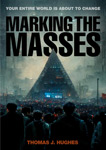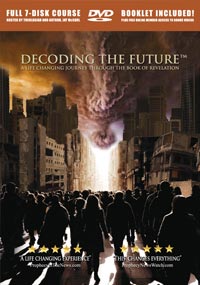70% of Americans Say Finding a Job is Getting Harder
 By
By
With low employment rates and a high amount of job openings, finding a job in the United States has become increasingly challenging.
From economic fluctuations, technological advancements, and shifting industry demands, job seekers have a harder time trying to beat the competition.
Having trouble with the job hunt? Every little thing helps. Stand out from the crowd and ensure your resume is polished with a free resume review.
The Current Job Market Landscape
The job market in the United States is characterized by a complex and competitive environment that presents significant challenges for job seekers.
Economic Uncertainty
●
Pandemic
Aftershocks: The COVID-19 pandemic led to unprecedented job losses and
business closures. Although the economy has shown signs of recovery, some
industries, such as hospitality and retail, are still grappling with the
aftermath, resulting in fewer job openings.
●
Inflation and
Recession Fears: Ongoing concerns about inflation and potential recessions
can cause employers to be cautious about hiring. Companies might need to fill
positions or reduce their workforce to cut costs, leading to fewer job
opportunities.
●
Sector-Specific
Variability: Some industries, like technology and healthcare, have bounced
back quickly and even experienced growth, while others, such as manufacturing
and travel, continue to struggle. This uneven recovery creates disparities in
job availability across different sectors.
●
Automation and
AI: Automation and artificial intelligence are replacing routine tasks in
various industries, from manufacturing to customer service. While this
eliminates specific jobs, it also creates demand for new roles that require
advanced technical skills.
●
Digital
Transformation: The shift towards digital solutions and remote work has
accelerated, necessitating proficiency in digital tools and platforms. To
remain competitive, job seekers must demonstrate their ability to work
effectively in a digital environment.
●
Skills Gap:
The rapid pace of technological change has created a skills gap, where the
skills possessed by many job seekers do not align with employers' needs.
Continuous learning and upskilling are essential to bridge this gap and stay
relevant.
●
Increased
Education Levels: More people are obtaining higher education degrees,
leading to a crowded field of highly qualified candidates. This saturation
makes it harder for individuals to distinguish themselves based solely on
educational credentials.
●
Global Talent
Pool: Remote work has expanded the talent pool beyond geographical
boundaries, allowing companies to hire from a global workforce. This increases
competition for positions as candidates from around the world vie for the same
jobs.
●
Experienced
Professionals: Many industries are seeing an influx of skilled
professionals who are re-entering the job market due to layoffs or career
changes. These individuals often bring extensive experience and networks,
adding to the competitive pressure.
●
Remote Work
Norms: The pandemic has normalized remote work, prompting companies to seek
employees who can work independently and manage remote collaboration tools. Job
seekers need to demonstrate their adaptability to this new working environment.
●
Sustainability
and Ethical Practices: Companies are increasingly prioritizing
sustainability and ethical practices. Job seekers with experience or interest
in these areas may find more opportunities, but this also means adapting to new
industry standards.
●
Focus on Soft
Skills: Employers are placing greater emphasis on soft skills such as
communication, teamwork, and problem-solving. These skills are essential for
navigating the dynamic and often collaborative nature of modern workplaces.
A well-crafted resume can open doors, while a poorly
constructed one can close them. Here's why a strong resume is crucial:
1.
First
Impressions Matter: Employers often spend only a few seconds reviewing each
resume. A clear, concise, and well-organized resume can quickly capture their
attention and convey the candidate's qualifications.
2.
Showcasing
Skills and Experience: A resume should highlight the candidate's relevant
skills, experiences, and achievements. It should be tailored to the specific
job and demonstrate how the candidate's background aligns with the employer's
needs.
3.
Beating
Applicant Tracking Systems (ATS): Many companies use ATS to screen resumes
before they reach a human recruiter. A resume that is not optimized for these
systems may never be seen by a hiring manager.
1.
Expert Feedback:
Professional resume reviewers are familiar with current hiring trends and
employer expectations. They can provide valuable insights and suggestions to
improve the content and format of the resume. 2.
Tailoring to Job
Descriptions: Reviewers can help tailor the resume to specific job
descriptions, ensuring that relevant keywords and skills are highlighted to
pass through ATS and catch the recruiter's eye.
3.
Enhancing
Readability: A resume should be easy to read and well-organized. Reviewers
can suggest changes to improve the layout, font choices, and overall
readability, making it more likely to leave a positive impression.
4.
Highlighting
Achievements: Professionals can help identify and emphasize key
achievements and experiences that may have been overlooked by the candidate,
ensuring that the resume effectively showcases the candidate's strengths.
5.
Boosting
Confidence: Knowing that a resume has been reviewed and polished by an
expert can boost a job seeker's confidence, which can positively impact their
overall job search and interview performance.
Enhance your resume and effectively showcase your
qualifications with a free resume review.Technological Disruption
High Competition
Changing Industry Demands
The Importance of a Strong Resume
How Resume Reviews Can Help




